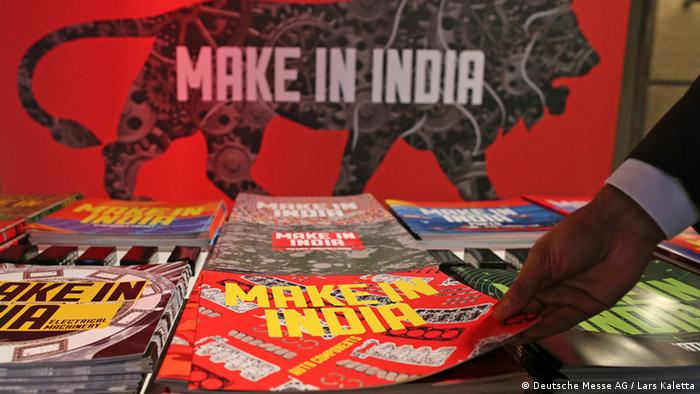
India@75
India: An Unexpected Revolution
Big Bang of Indian Robotics?
Overcoming history
Is it possible for five friends to pool their savings and work out of a two-room office in Delhi’s Tagore Garden neighborhood in 2016 to launch a robot company that by 2022 would initiate the building of the world’s largest robot factory, which, in turn, just might also turn out to be the Big Bang in robot building for a tech ecosystem sorely in need of one?

Well, here’s what the five are up against:
Mukul Yudhveer Singh, in India’s INC42, is very straightforward and succinct about the state of robotics in India: “India is not known for its hardware and robot manufacturing prowess.” Period!
To which, Dr Jaijit Bhattacharya, former head of the Centre for Fourth Industrial Revolution in India, writing in Outlook, gets a bit more specific: “So why is it crucial to bring up these developments in the Indian context? It is because robotics is another “big bus” that we are poised to miss. Yes, the country does have numerous startups and deep skills in robotics. But it is not enough to be able to get any significant slice of the global robotics market. Moreover, we as a country, need robots for our own unique usage…technology will move forward relentlessly, and if India is not at the forefront, we will be crushed under the wheels of obsolescence and low productivity.”
As just one example of “missing the big bus” for Indian robotics: Of the $31 billion in manufacturing output that moved away from China to other Asian countries, India captured only 10%, said Nikhil Ramaswamy in an interview in Dataquest. The rest went to Thailand, Vietnam, and Indonesia.
Nowhere is the need of awakening for Indian Robotics more acute than in the minds of Amit Kumar, Bir Singh, Sangeet Kumar, Prateek Jain, and Satish Shukla, the five close friends who co-founded Addverb Technologies.
“It is easy to set up a software company in India as the talent, funds and mentorship are all available in abundance here. The biggest problem in setting up a hardware manufacturing company is the availability of talent,” pointed out Addverb co-founder Sangeet Kumar.
“The Addverb journey began at Asian Paints, where the five co-founders were working on automating warehouses. Since robotics manufacturing was not India’s strength, Asian Paints had to import all the machinery, equipment, robots, and everything else needed for this task.
That’s when the opportunity dawned on the quintet: “Why does India not have a manufacturer of robots? Why are there no automation equipment suppliers for factories and warehouses in India? These questions kept me awake for countless nights,” recalled Kumar (Addverb co-founder).
Waiting for that awakening to automation are India’s 63 million Micro- and SMEs that collectively account for 50% of overall exports from the country, 27% of India’s GDP ($6.3 trillion), and are employers to 111 million Indian citizens.
According to the company, “Bot-Valley (in Noida) aims to encourage creativity and foster collaboration among the top technopreneurs in the nation…Addverb hopes to develop a self-sufficient robotics sector in India and export cutting-edge goods and game-changing technological solutions to the rest of the world.”
Now, that’s a revolution in machine building that could help India reinvent itself. All the more remarkable, and never previously attempted, is that the company’s five founders truly believe that they can pull it off

Here’s what the Addverb plan has going for it:
Addverb has a financial champion in Mukesh Ambani, purportedly the richest person in Asia as well as owner of the massively-powerful conglomerate Reliance Industries ($97 billion, 2022), who bought 54% of Addverb for $132 million…plus, gave Addverb an order for $1 billion worth of robot automation.
Addverb has committed to building the world’s largest robot factory, which will be ten times bigger than Addverb’s current manufacturing facility in Bot-Valley
In seven years (since 2015), India has made a massive jump in the Global Innovation Index from 81 to 43.
JLL City Momentum Index: Hyderabad emerges as the world’s most dynamic city, pushing last year’s Index winner, Bengaluru, into second place (Silicon Valley is 3rd, formerly 2nd). Another five Indian cities make the Top 20: Chennai (5th), Delhi (6th), Pune (12th), Kolkata (16th), and Mumbai (20th).
In addition to a burgeoning middle class (shaken but not deterred by COVID), “India has the largest youth population in the world; around 66 per cent of the total population (more than 808 million) is below the age of 35. Nearly 40 per cent of the Indian population is aged 13 to 35 years.”

The timing for building the factory is perfect: global warehouse robotics market size is expected to nearly double, growing from $4.7 billion in 2021 to $9.1 billion by 2026.
The Importance of Bot-Valley
The facility, which spans a 2.5-acre area, was built to develop several material handling robots domestically because the company fully believes in the phrase “Make In India & Make for the World.”
The center has state-of-the-art mechanical and electronic equipment and will spearhead attempts to turn India into the world’s robotics capital. The business wants to establish a facility where robots build robots. The manufacturing center will have 450 workers.
Addverb Technologies: The home-grown robotics company marking the first step in the Indian robotics revolution
Addverb Technologies is a pioneer in deploying cutting-edge robotic and automation solutions across factories and warehouses to disrupt the Indian manufacturing and supply chain industry.
The company has been developing robots and automation technologies In India that are appropriate for various organizations, including Fortune 500 firms and small and medium-sized enterprises. It uses technologies like artificial intelligence (AI), machine learning, robotics, shuttles, and the Internet of Things (IoT) to increase the efficiency and accuracy of warehouse and factory operations. It also uses its proprietary software solutions, such as the Warehouse Management System, Warehouse Control System, and Warehouse Execution System. They offer complete automation solutions using a special 4D approach (discovery, design, development, and dedication), which entails finding the best automation to solve a customer’s issue, designing the best way to manufacture the product, carrying out the project, and providing committed post-sale support.
Why is it important to India’s robotics industry? The “Bot-Valley” Story
Bot-Valley is a recently opened manufacturing, R&D, head office, and experience center that Addverb Technologies opened 3 April 2021. We didn’t want to refer to this facility as a factory because it is not solely a production facility. Everyone who comes to the facility has the chance to engage with the robots and see how automated it is.
Actually, in this place, “Robots make Robots,” and with the help of these robots, Addverb hopes to make Noida the center of the world’s robotics industry. The senior management at Addverb Technologies chose the name “Bot-Valley” for this facility because they are convinced it will foster innovation in the robotics industry. Additionally, the organization has been engaging in a lot of academic collaboration, and its goal is to create a Bot-Valley for the top academic scholars in the field of robotics.
Addverb Technologies hopes to fully realize the potential of the European, Australian, Asian, and American markets by providing an end-to-end product portfolio powered by innovative technologies like :
- Artificial Intelligence
- Machine Learning
- Deep Learning
- Computer Vision
- IoT
These technologies will be used to streamline warehousing and factory operations and assist clients in building warehouses with higher levels of efficiency, accuracy, and flexibility.
High expectations for the Indian robotics market’s globalization
The ultimate goal of Bot Valley is the long-term expansion of Addverb Technologies, which has a diverse clientele in the US and Europe. The organization is eager to increase its manufacturing capacity to meet demand worldwide, and they are also willing to establish micro-factories in various locations to meet demand spikes, if any, in the local markets.
The Reliance-backed startup aims to grow internationally by the end of 2022, particularly in South East Asia, the US, the Netherlands, and Australia. They are prepared to enter new markets, like the automobile industry, in the home market. They aspire to establish themselves as a leading worldwide robotics company by becoming the sole supplier of AMR, pallet shuttles, carton shuttles, and sorting robots in the Indian market.
Potential of Indian robotics and the promise of Bot-Valley (Noida)
More people are becoming receptive to robotics due to the obvious labor crisis we currently face in the market and the rising literacy rate. Companies are developing strategies to lower capital expenditures by utilizing novel business models like RaaS. (Robotics- As-A-Service). There is little doubt that robotic technologies will transform how work is done in the fields in which they are used. Manufacturing, pharmaceuticals, fast-moving consumer goods (FMCG), packaging, and inspection are the main industries impacted by robotics. Technology might also include robotics. Two more appealing industries are the military and education.
The PC and smartphone revolutions have just finished sweeping the globe, and the inevitable robotics revolution is now upon us. In the next five to ten years, it is anticipated that this field will advance quickly thanks to investments from large companies like Google, FESTO, and Tesla, as well as a significant increase in amateur robotic enthusiasts. Additionally, a recent report reveals that the Indian industrial robotics market was valued at 4,564 units in 2018 and is projected to expand at a CAGR of 13.3 percent from 2019 to 2024.
At such times Addverb’s Bot- Valley, with the capability to produce more than 50,000 different types of robots annually that are outfitted with top-of-the-line mechanical and electronic equipment, is a big glimmer of hope for the Indian robotics market.
World's Biggest Robot Manufacturing Unit
Making its way as a major player in robotics manufacturing with diverse clientele and experienced management
Sangeet Kumar, Satish Shukla, Bir Singh, Neeraj Sharma, Prateek Jain, and Amit Kumar, all former Asian Paints executives, created Addverb in 2016.
Market growth for warehouse robotics is anticipated to reach 9.1 billion USD in 2026 from 4.7 billion USD in 2021.
With the addition of this new plant, Noida will grow to become Southeast Asia’s largest robotics hub.
E-commerce sites like Flipkart and Amazon and businesses like PepsiCo, Coca-Cola, Marico, Dabur, ITC, and Patanjali have benefited from Addverb’s warehouse automation solutions.
Bot-Valley and the future of Addverb Technologies
Global retailers and consumer-facing businesses are looking toward automation, and the complexity of their processes has rendered the market’s old solutions useless.
With its modular software and customized hardware, Addverb seeks to occupy this market.

They have implemented numerous cutting-edge warehouse robotic solutions with key clients in India’s FMCG, Retail, E-Commerce, Fashion & Lifestyle, and 3PL industries.
Particularly during the COVID period, their products have aided organizations in scaling up quickly and managing operations without incident.
They have been able to tailor their goods to satisfy the various needs of consumers across various sectors since they have total control over hardware and software.
The organization has developed “Mobinity,” a warehouse control system that aids in merging several automation solutions in a single warehouse, a very potent software platform. The software is very modular, independent of specific hardware, and adaptable to any kind of integration.
Bot-Valley: India’s—and the world’s!—largest robot manufacturing unit
With the help of Bot-cutting-edge Valley’s production facilities, Addverb can deploy over 60,000 robots of various varieties each year and a big, highly automated warehouse in just four months. Over 3,000 individuals will have access to highly trained employment possibilities at the new plant, which has a 60,000 square meter footprint. The facility has open workstations for all at both valleys and there are no cabins for anyone in the organization. According to Addverb, Bot-Valley also has a training center that helps them to equip employees and customers with the right skill set to install and operate complex automation systems.
Sangeet Kumar, the CEO, said that “This brand-new facility will make Addverb a giant robot manufacturer on global fronts, by delivering cutting edge software and robust hardware systems, along with a mix of innovative fixed and flexible automation solutions.”
They have also established a Micro-Fulfillment Center for a well-known Indian-based e-commerce business. Their vast expertise in automating warehouses ranging in size from 2000 square feet (Micro-Fulfillment Centers) to million-square-foot (Mega Distribution Centers) enables them to develop a special blend of technology solutions that are one of a kind worldwide.
The company wants to export 60% of its goods in line with the Prime Minister’s goal of Atmanirbhar Bharat, meaning ‘self-reliant India’ , making it a success story for Make in India worldwide. CEO Sangeet Kumar further states “Bot-valley is an expression of what kind of an organization we want to build and what kind of an organization Addverb aspires to. For each of the creative expressions and themes that you see at bot-valley, you will see us celebrating the passion and joy of work throughout.”
According to the company, Bot-Valley aims to encourage creativity and foster collaboration among the top technopreneurs in the nation. With the construction of this facility, Addverb hopes to develop a self-sufficient robotics sector in India and export cutting-edge goods and game-changing technological solutions to the rest of the world.
About: Addverb Technologies
The homegrown company Addverb Technologies is a pioneer in deploying cutting-edge robotic and automation solutions across factories and warehouses to disrupt the Indian manufacturing and supply chain industry. The company has produced robots and automation technologies in India suited for various organizations, from Fortune-500 companies to small and medium-sized businesses.
To increase the efficiency and precision of warehouse and factory operations, it makes use of technologies like artificial intelligence (AI), machine learning, robotics, shuttles, automated storage and retrieval system (ASRS), IoT, and their proprietary software solutions, such as the Warehouse Management System, Warehouse Control System, and Warehouse Execution System. In addition, they offer complete automation solutions utilizing a unique 4D strategy (discovery, design, development, and dedication), which entails finding the best automation to solve a customer’s problem, developing a way to manufacture the product, carrying out the project, and providing committed after-sales support.

Asian Robotics Review & This Is Robotics: Radio News would like to thank Addverb Technologies for the generous support in making our 75th Indian Independence (1947-2022) content and our look at The Future of Indian Robotics: An Unexpected Revolution. Many thanks as well to the five founders of Addverb Technologies for making such a meaningful and responsible presence in the future of Indian robotics.






